Metals Prices in Lebanon
Lebanon is an Asian country on the shores of the Mediterranean Sea with a history of several thousand years of civilization. Most metals are silvery, high-density, and relatively soft solids that deform easily. Precious stones, fertilizers, salt, iron ore, and cement are major mineral products of Lebanon. Metals are now mainly used in the manufacture of industrial tools. Roads, Rail, Sea and Air are main transition ways in Lebanon. The countries of the Middle East have a significant share of iron resources
Add your import and export orders to this list
Warning: Undefined variable $formTitle in /home/anbar/domains/anbar.asia/anbar/inc/html/desktop/orderform.php on line 10
Warning: Undefined variable $marketName in /home/anbar/domains/anbar.asia/anbar/inc/html/desktop/orderform.php on line 12
Warning: Undefined variable $location in /home/anbar/domains/anbar.asia/anbar/inc/html/desktop/orderform.php on line 12
If you want to trade in the , please join in Anbar Asia. Your order will be shown here, so the traders of contact you

Lebanese has a stable economy but now with almost low growth. Almost all metals are solid, shiny, and white-gray. Road, rail, sea, and airlines between Lebanon and the countries is examined as a key infrastructure for the delivery of goods and commercial cargo. The base metals industry is the most important export industry in the Middle East after oil and petrochemicals
- Lebanon Copper Market
- Lebanon Zinc Market
- Lebanon Gold Market
- Lebanon Aluminum Market
- Lebanon Silver Market
- Lebanon Steel Market
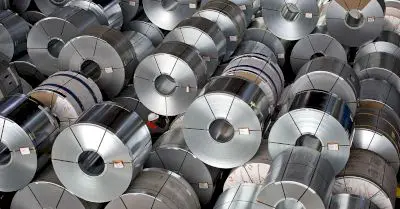
Many global mining experts predict that at current consumption rates, the planet's economy over the next 70 years will undermine the current known reserves, which are likely to consume half of the world's current metals. Shortly, increasing dependence on essential mineral imports, plus global competition for scarce resource resources, will increase prices and bargain for exporting countries.
Read More ...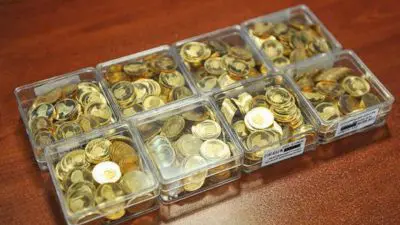
Gold is a chemical element with the symbol Au and atomic number 79 and is one of the elements with high atomic number that exists in nature. Gold is pure, a shiny metal, reddish yellow, dense, soft, malleable and flexible.
Read More ...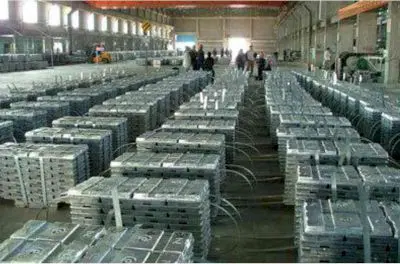
Zinc is found in several ores, the principal ones being zinc blende (zinc sulfide) and calamine (zinc silicate). The principal mining areas are in China, Australia and Peru. Commercially, zinc is obtained from its ores by concentrating and roasting the ore, then reducing it to zinc by heating with carbon or by electrolysis. World production is more than 11 million tonnes a year.
Read More ...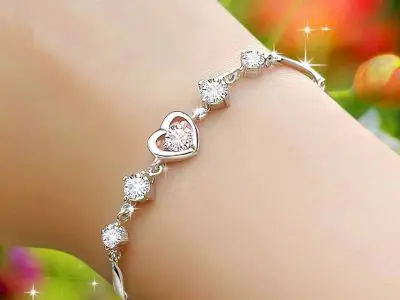
The interesting thing about silver is that today, the metal is used for solder and solder alloys, batteries, dentistry, LED chips, nuclear reactors, photovoltaic (or solar) energy, RFID chips to track packages or shipments worldwide, Semiconductors, touch screens, wood preservatives, and many other industrial applications.
Read More ...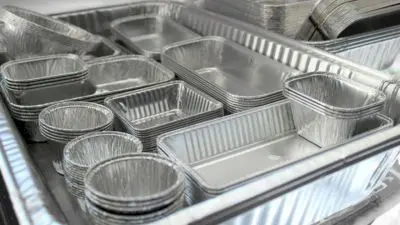
When the concentration of aluminum in the environment increases, it has severe effects on human health. Water-soluble aluminum is dangerous. Particles of aluminum that dissolve in water are called ionic particles, for example, aluminum chloride. Other ways to increase the amount of aluminum in the body are to breathe and make skin-to-skin contact with aluminum.
Read More ...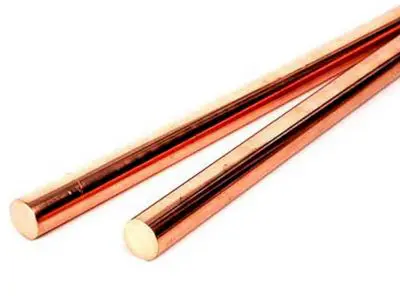
About two-thirds of the earth's copper is found in igneous rocks, and about a quarter occurs in sedimentary rocks. This metal is flexible and flexible and conducts heat and electricity well, which is why it is widely used in electronics and wiring.
Read More ...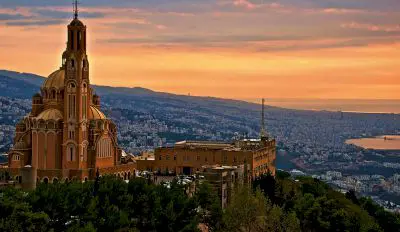
Lebanon is an Asian country on the shores of the Mediterranean Sea with a history of several thousand years of civilization. The region was one part of the Levant and became an independent state after the collapse of the Ottoman Empire. The majority of the population is Muslim. Several tribes are living in Lebanon. About 30% of the country's population is Shiite.
Read More ...Lebanon include many of the leading industries, including the following: [1]. Metal industry in Lebanon . 9 million metric tons of hydraulic cement, production 1,700 metric tons of gypsum, and the production of 14,000 metric tons of lime, while salt production reached 3,500 metric tons, and produced Lebanon during the year 2004 phosphate fertilizers, phosphoric acid, sulfuric acid, and there in the country, no oil reserves or gas. Lebanon is characterized by its economy advanced, as has the largest proportion of skilled labor compared to other Arab countries. Lebanon exported many of the authentic jewelry, fruit, structural metals, inorganic chemicals, and textile fibers, paper, while imports are cars, petroleum products, meat, animals, and textiles. Ochsenwald, Richard David Barnett and others, www. ↑ www. ^ أ ب "Facts about Lebanon", www.
Read More ...
Lebanon is historically notorious for its lack of metals and similar natural resources. Since mining of gold is non-existent in Lebanon, a second look at trade figures confirms that Beirut mostly acts as a transit point in the gold trade. Lebanon is the 27th largest buyer of gold in the world, behind regional hubs such as the UAE, Turkey, Jordan, Kuwait and Iran, while the biggest importers are Switzerland, China and India, according to the United Nations Conference on Trade and Development (UNCTAD). In terms of exports, Lebanon ranks 61st, far behind global producers such as South Africa, Russia, and Burkina Faso. There are only a handful of refiners in Lebanon. For reasons that are unclear; gold from West Africa transits through Lebanon before being exported to be refined. Especially in Lebanon, people have lost their money and savings many times. Even though Lebanon has a strong banking system, there is always more comfort in knowing your money has been invested in gold. When asked why gold transits through Lebanon rather than being exported directly to refineries in countries like Switzerland or South Africa, professionals are vague in their answers. “Historically, Lebanon has always played the role of a commercial intermediary between Europe and Arab countries, East and West,” says economist Elie Yachoui. For example, Lebanon imports from Togo and Benin, which are not significant gold producers, she says. Another reason why West African gold transits first through Lebanon before being re-exported is that it becomes harder to trace, explains a second Lebanese trader, who also spoke with Executive on condition of anonymity. So maybe professionals are avoiding these regulations by using Lebanon as a transit point,” he says. According to Lebanese customs, Switzerland is one of only two export destinations for non-monetary gold that transits through Lebanon. In relation to Lebanon, the role of this country grew from 71 percent of Lebanese gold exports in 2013 to 89 percent in 2016. None of the South African refineries, such as Rand and Gauteng, nor the South African diamond and precious metals regulator responded to Executive’s questions on this matter by the time this article went to print. The Ministry of Finance in Lebanon, which supervises local customs authorities, also declined an interview. One of the traders who spoke to Executive anonymously stressed that Lebanon implements strict due diligence rules, and that South Africa has similar regulations to Switzerland. “The reason Lebanon exports more to South Africa is that it’s cheaper. As Boghos points out, Dubai imposed a 5 percent tax on imported gold jewelry in early 2017, and this could have played a role in a recent increase in the amount of gold transiting through Beirut. What complicates the picture further is that Lebanon doesn’t only import gold from West Africa or newly refined gold from other countries; one important component of imports is scrap gold. Jewelry is Lebanon’s number one manufactured export, with over 1,000 gold workshops and small factories that for the most part export to the Gulf, Boghos says. In 2016, Lebanon imported 30 percent of its gold from Egypt, a relatively new trend. According to the same trader, unregistered scrap gold is also smuggled into Lebanon from Syria, presumably for tax avoidance or even attempts to circumvent sanctions against the regime in Damascus. As indicated by the import and export data, gold consumption in Lebanon can be estimated at a little under $300 million for 2016. According to a source, this increase in consumption is linked to the fact that Lebanon slowly started moving toward more transparent banking when it promised, back in May 2016, to adopt the OECD’s Common Reporting Standard (CRS) starting in 2018. “Out of the $300 million that is bought in Lebanon, we cannot know what amount stays here. A lot of expatriates that come to Lebanon for the summer buy gold jewelry which then exits the country unregistered,” he explains.
Read More ...
Quantities of scrap metal are collected in Tripoli in northern Lebanon for sorting and export on March 5, 2021. Economic crisis spawns the boom of scrap metal trade in northern Lebanon as many who lost their jobs are scrambling to collect and sell it, earning an equivalent daily wage of 7 U. BEIRUT, March 10 (Xinhua) -- For many who were expelled from the labor market amid the economic crisis in Lebanon, collecting and selling scrap metal has made a stable trade that provides new possibilities for their life. "We collect scrap metal, which includes iron, aluminum, copper and plastic from various cities and districts in the north," Khaled al-Sheikh, a scrap metal dealer in northern Lebanon who employs 20 people including students, told Xinhua. Al-Sheikh said he also receives large quantities of scrap metal from Syria after many cities and villages have been damaged or destroyed in the war-torn neighboring country, which has partly contributed to the boom of the scrap metal trade in northern Lebanon. A tractor collects metal scrap in Tripoli in northern Lebanon on March 5, 2021. dollars calculated at the exchange rate in the black market, said al-Sheikh, as according to the World Bank, the economic crisis in Lebanon has led to a poverty rate exceeding 50 percent, an surge in unemployment and inflation as well as the collapse of the local currency. A worker sorts scrap metal in Tripoli in northern Lebanon on March 5, 2021. International studies showed that Lebanon's scrap metal is in high demand for its freedom from radioactive substances. The scrap metal trade is particularly popular in Tripoli, the largest city in northern Lebanon, as about 70 percent of Lebanon's scrap metal export goes through the city's port. A worker sorts scrap metal in Tripoli in northern Lebanon on March 5, 2021.
Read More ...
https://globalinitiative.net/analysis/glittering-in-the-shadows-an-analytical-view-of-the-lebanese-gold-trade/
https://a.worldmisc.com/read/industry-in-lebanon

